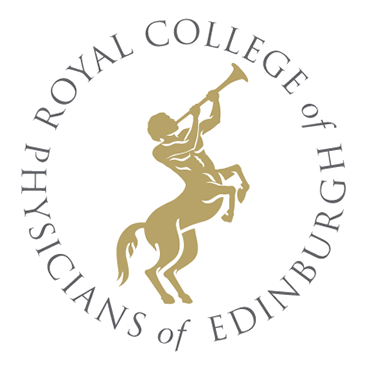
The Consultation Letters of Dr William Cullen (1710-1790) at the Royal College of Physicians of Edinburgh
[ID:3035] From: Dr Andrew Bain / To: Dr William Cullen (Professor Cullen) / Regarding: Governor George Johnstone (Johnston) (Patient) / 30 May 1787 / (Incoming)
Letter from A. Bain, writing from Hotwells, near Bristol, reporting the post mortem on Governor George Johnstone, which found diseased enlargement of the maxillary and adjacent glands, and the schirrosity and erosion of the tongue and pharynx. He finds the disease was 'indisputably of a cancerous nature'. He also asks Cullen to send him Dr Irving's letter, and sends his compliments to one of his sons (unnamed).
- Facsimile
- Normalized Text
- Diplomatic Text
- Metadata
- Case
- People
- Places
Facsimile
There are 4 images for this document.
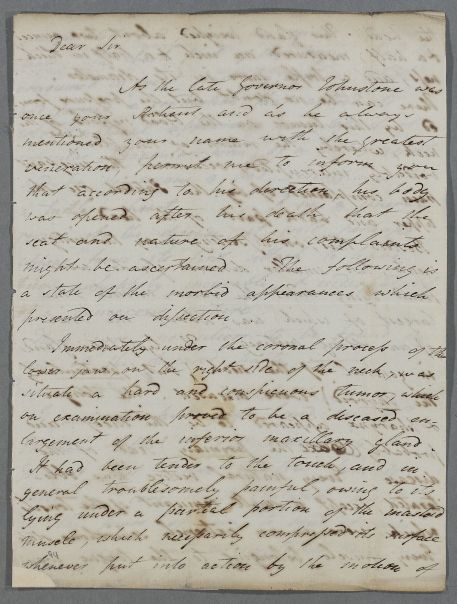
[Page 1]
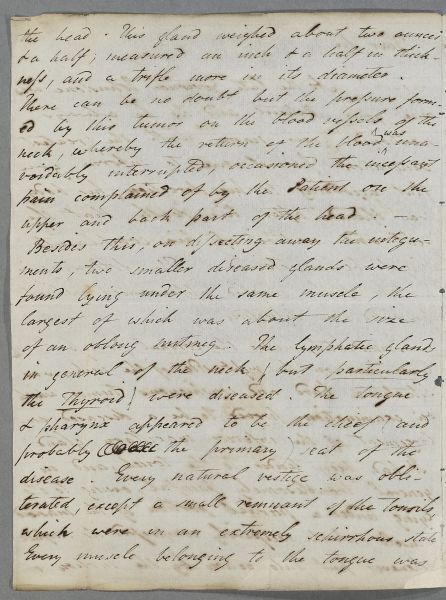
[Page 2]
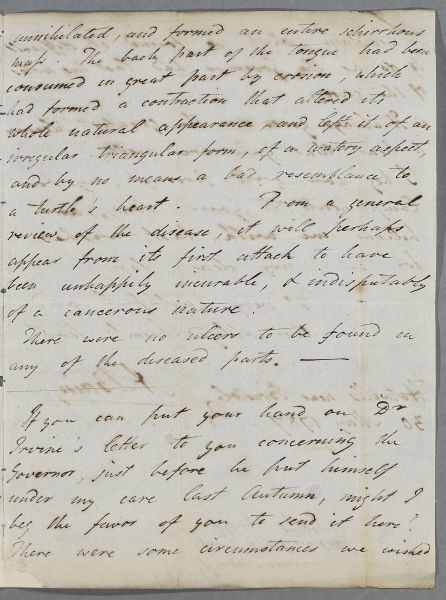
[Page 3]
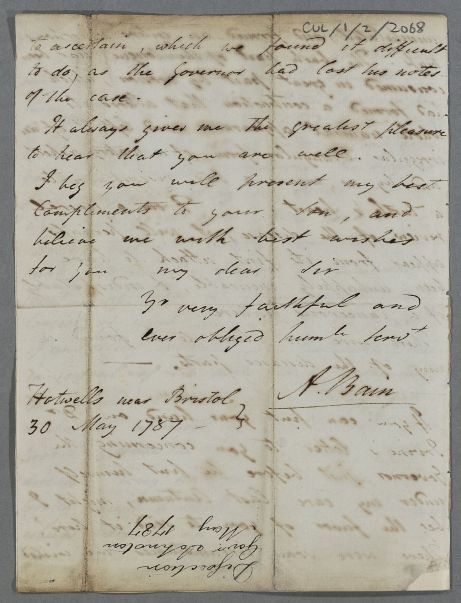
[Page 4]
Metadata
| Field | Data |
|---|---|
| DOC ID | 3035 |
| RCPE Catalogue Number | CUL/1/2/2068 |
| Main Language | English |
| Document Direction | Incoming |
| Date | 30 May 1787 |
| Annotation | None |
| Type | Authorial original |
| Enclosure(s) | No enclosure(s) |
| Autopsy | Yes |
| Recipe | No |
| Regimen | No |
| Letter of Introduction | No |
| Case Note | No |
| Summary | Letter from A. Bain, writing from Hotwells, near Bristol, reporting the post mortem on Governor George Johnstone, which found diseased enlargement of the maxillary and adjacent glands, and the schirrosity and erosion of the tongue and pharynx. He finds the disease was 'indisputably of a cancerous nature'. He also asks Cullen to send him Dr Irving's letter, and sends his compliments to one of his sons (unnamed). |
| Manuscript Incomplete? | No |
| Evidence of Commercial Posting | No |
Case
Cases that this document belongs to:
| Case ID | Description | Num Docs |
|---|---|---|
| [Case ID:1930] |
Case of Governor George Johnstone (Johnston) who has a maxillary gland tumour and diseased tongue, which prove fatal. |
3 |
People linked to this document
| Person ID | Role in document | Person |
|---|---|---|
| [PERS ID:5445] | Author | Dr Andrew Bain |
| [PERS ID:1] | Addressee | Dr William Cullen (Professor Cullen) |
| [PERS ID:99] | Patient | Governor George Johnstone (Johnston) |
| [PERS ID:5446] | Patient's Physician / Surgeon / Apothecary | Dr Ralph Irving |
| [PERS ID:1] | Patient's Physician / Surgeon / Apothecary | Dr William Cullen (Professor Cullen) |
| [PERS ID:5445] | Patient's Physician / Surgeon / Apothecary | Dr Andrew Bain |
| [PERS ID:1967] | Other | Mr Cullen (Probably one of Cullen's sons, but no first name given.) |
Places linked to this document
| Role in document | Specific Place | Settlements / Areas | Region | Country | Global Region | Confidence |
|---|---|---|---|---|---|---|
| Place of Writing | Hotwells | South-West | England | Europe | certain | |
| Destination of Letter | Edinburgh | Edinburgh and East | Scotland | Europe | inferred | |
| Mentioned / Other | Bristol | South-West | England | Europe | certain |
Normalized Text
As the late Governor Johnstone was
once your patient and as he always
mentioned your name with the greatest
veneration, permit me to inform you
that according to his direction, his body
was opened after his death, that the
seat and nature of his complaints
might be ascertained. The following is
a state of the morbid appearances which
presented on dissection.
Immediately under the coronal process of the
lower jaw, on the right side of the neck, was
situate a hard and conspicuous tumor, which
on examination proved to be a diseased en¬
largement of the inferior maxillary gland.
It had been tender to the touch, and in
general troublesomely painful, owing to its
lying under a partial portion of the mastoid
muscle, which necessarily compressed its surface
whenever put into action by the motion of
[Page 2]
the head. This gland weighed about two ounces
& a half, measured an inch & a half in thick¬
ness, and a trifle more in its diameter.
There can be no doubt but the pressure form¬
ed by this tumor on the blood vessels of the
neck, whereby the return of the blood ↑was↑ una¬
voidably interrupted, occasioned the incessant
pain complained of by the Patient on the
upper and back part of the head. ––
Besides this, on dissecting away the integu¬
ments, two smaller diseased glands were
found lying under the same muscle, the
largest of which was about the size
of an oblong nutmeg. The lymphatic glands
in general of the neck, (but particularly
the Thyroid) were diseased. The tongue
& pharynx appeared to be the chief (and
probably {illeg} the primary) seat of the
disease. Every natural vestige was obli¬
terated, except a small remnant of the Tonsils
which were in an extremely schirrous state
Every muscle belonging to the tongue was
[Page 3]
annihilated, and formed an entire schirrous
mass. The back part of the tongue had been
consumed in great part by erosion, which
had formed a contraction that altered its
whole natural appearance, and left it of an
irregular triangular form, of a watery aspect
and by no means a bad resemblance to
a turtle's heart. From a general
review of the disease, it will perhaps
appear from its first attack to have
been unhappily incurable, & indisputably
of a cancerous nature.
There were no ulcers to be found in
any of the diseased parts. ––––
If you can put your hand on Dr
Irvine's letter to you concerning the
Governor just before he put himself
under my care last Autumn, might I
beg the favor of you to send it here?
There were some circumstances we wished
[Page 4]
to ascertain, which we found it difficult
to do, as the Governor had lost his notes
of the case.
It always gives me the greatest pleasure
to hear that you are well.
I beg you will present my best
Compliments to your son, and
believe me with best wishes
for you my dear sir
ever obliged humble servant
30 May 1787 –
Dissection
Governor Johnston
May 1787
Diplomatic Text
As the late Governor Johnstone was
once your patient and as he always
mentioned your name with the greatest
veneration, permit me to inform you
that according to his direction, his body
was opened after his death, that the
seat and nature of his complaints
might be ascertained. The following is
a state of the morbid appearances which
presented on dissection.
Immediately under the coronal process of the
lower jaw, on the right side of the neck, was
situate a hard and conspicuous tumor, which
on examination proved to be a diseased en¬
largement of the inferior maxillary gland.
It had been tender to the touch, and in
general troublesomely painful, owing to its
lying under a partial portion of the mastoid
muscle, which necessarily compressed its surface
whenever put into action by the motion of
[Page 2]
the head. This gland weighed about two ounces
& a half, measured an inch & a half in thick¬
ness, and a trifle more in its diameter.
There can be no doubt but the pressure form¬
ed by this tumor on the blood vessels of the
neck, whereby the return of the blood ↑was↑ una¬
voidably interrupted, occasioned the incessant
pain complained of by the Patient on the
upper and back part of the head. ––
Besides this, on dissecting away the integu¬
ments, two smaller diseased glands were
found lying under the same muscle, the
largest of which was about the size
of an oblong nutmeg. The lymphatic glands
in general of the neck, (but particularly
the Thyroid) were diseased. The tongue
& pharynx appeared to be the chief (and
probably {illeg} the primary) seat of the
disease. Every natural vestige was obli¬
terated, except a small remnant of the Tonsils
which were in an extremely schirrous state
Every muscle belonging to the tongue was
[Page 3]
annihilated, and formed an entire schirrous
mass. The back part of the tongue had been
consumed in great part by erosion, which
had formed a contraction that altered its
whole natural appearance, and left it of an
irregular triangular form, of a watery aspect
and by no means a bad resemblance to
a turtle's heart. From a general
review of the disease, it will perhaps
appear from its first attack to have
been unhappily incurable, & indisputably
of a cancerous nature.
There were no ulcers to be found in
any of the diseased parts. ––––
If you can put your hand on Dr
Irvine's letter to you concerning the
Governor just before he put himself
under my care last Autumn, might I
beg the favor of you to send it here?
There were some circumstances we wished
[Page 4]
to ascertain, which we found it difficult
to do, as the Governor had lost his notes
of the case.
It always gives me the greatest pleasure
to hear that you are well.
I beg you will present my best
Compliments to your son, and
believe me with best wishes
for you my dear sir
ever obliged humle servt
30 May 1787 –
Dissection
Govr. Johnston
May 1787
XML
XML file not yet available.
Feedback
Send us specfic feeback about this document [DOC ID:3035]
Please note that the Cullen Project team have now disbanded but your comments will be logged in our system and we will look at them one day...

